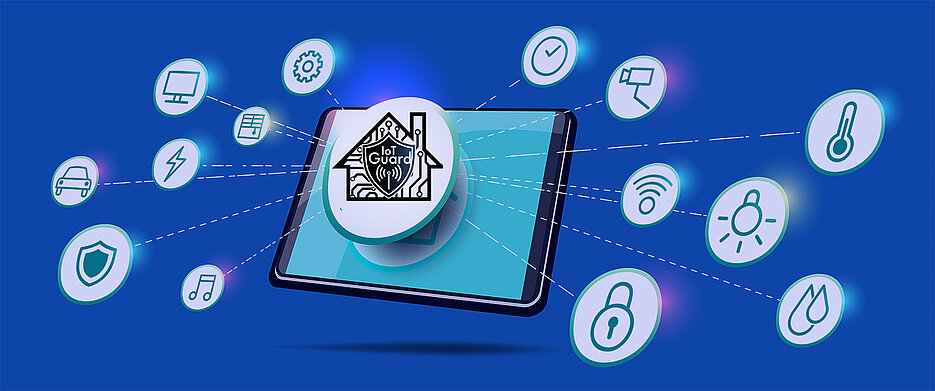IoTGuard: IoT Security in Smart Homes, Production, and Sensitive Infrastructure
08.12.2023The IoTGuard project, in collaboration with partners TU Darmstadt, Intel, Kobil, and IoT-Venture, develops AI-driven security for smart homes. Despite IoT excitement, challenges in device diversity and adversarial attacks persist. IoTGuard focuses on addressing these issues, emphasizing smart home security, distributed learning, and context-based attack detection. Insights are expected to apply in critical environments beyond smart homes. Project of the German Federal Ministry of Education and Research.
Despite the considerable excitement surrounding the Internet of Things (IoT), its development remains in its early stages, with numerous challenges requiring attention before it can fully realize its potential. The pervasive diversity in the landscape of IoT devices and the associated heterogeneity present pose the greatest challenges for developers in this domain.
At present, the security of IoT is far from assured, as evidenced by numerous attacks on a spectrum of devices, ranging from smartphones to critical breaches in automotive systems and smart home devices. The IoTGuard project conscientiously investigates existing and potential future attack scenarios. It strives to formulate effective solutions that secure IoT devices and the broader network environments, particularly within smart homes, against adversarial exploits.
The research conducted by the Secure Software Systems Group is particularly concentrated on the security of distributed learning systems, which are integral to a federation of multiple IoT devices collaboratively training AI systems. Additionally, the project delves into the realm of context-based attack and failure detection, placing specific emphasis on text and voice-controlled devices prevalent in smart home settings.
The insights garnered from this initiative, primarily within the context of smart homes, are anticipated to have broader applications across various domains. These domains include critical environments such as smart cities, smart factories, smart grids, and autonomous driving systems, where the transferability of findings from the IoTGuard project promises to enhance overall security and resilience.
People involved: Prof. Dr. Alexandra Dmitrienko, Torsten Krauß, Christoph Sendner.
Partners:
Intel Corporation
Zurück



